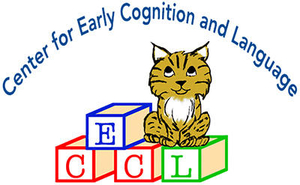Scott, R. M. (2016). A question of pragmatics, or the pragmatics of questions? Invited commentary on Helming, Strickland, & Jacob “Solving the puzzle about early belief-ascription”. Mind & Language, 31, 438-469.
Publications
2016
2015
Scott, R., Richman, J. C., & Baillargeon, R. (2015). Infants understand deceptive intentions to implant false beliefs: new evidence for early mentalistic reasoning.. Cognitive Psychology, 82, 32-56.
Baillargeon, R., Scott, R. M., He, Z., Sloane, S., Setoh, P., Jin, K., & Bian, L. (2015). Psychological and sociomoral reasoning in infancy.. In M. Mikulincer, P. R. Shaver, M. Mikulincer, & P. R. Shaver (Eds.), APA handbook of personality and social psychology: Vol. 1. Attitudes and social cognition (pp. 79-150). Washington, DC: American Psychological Association.
Scott, R., & Roby, E. (2015). Processing demands impact 3-year-olds’ performance in a spontaneous-response task: New evidence for the processing-load account of early false-belief understanding.. PLoS ONE, 10(e0142405).
2014
Scott, R. M. (2014). Post hoc versus predictive accounts of children’s theory of mind: A reply to Ruffman. Developmental Review, 34, 300-304.
Scott, R. M., & Baillargeon, R. (2014). How fresh a look? A reply to Heyes. Developmental Science, 17, 660-664.
2013
Scott, R. M., & Baillargeon, R. (2013). Do infants really expect others to act efficiently? A critical test of the rationality principle. Psychological Science, 24, 466-474.
Baillargeon, R., He, Z., Setoh, P., Scott, R., Sloane, S., & Yang, D. Y. J. (2013). False-belief understanding and why it matters: The white-lie hypothesis. In M. Banaji, S. Gelman, M. Banaji, & S. Gelman (Eds.), Navigating the social world: What infants, children, and other species can teach us (pp. 88-95). New York: Oxford University Press.
Barrett, C., Broesch, T., Scott, R., He, Z., Baillargeon, R., Wu, D., Bolz, M., Setoh, P., Wang, J., & Laurence, S. (2013). Is early false-belief reasoning universal? Evidence from three non-western cultures. Proceedings of the Royal Society B, 280, 1755.
2012
Cimpian, A., & Scott, R. (2012). Children expect generic knowledge to be widely shared.. Cognition, 123, 419-433.

